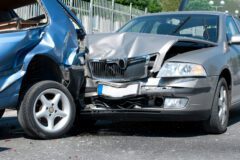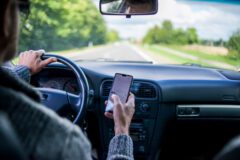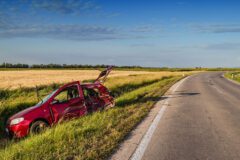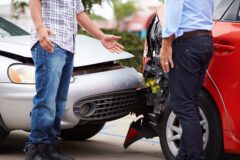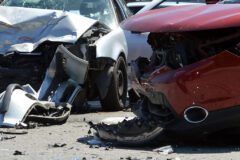10 Items You Should Keep in Your Car for Accident Emergencies
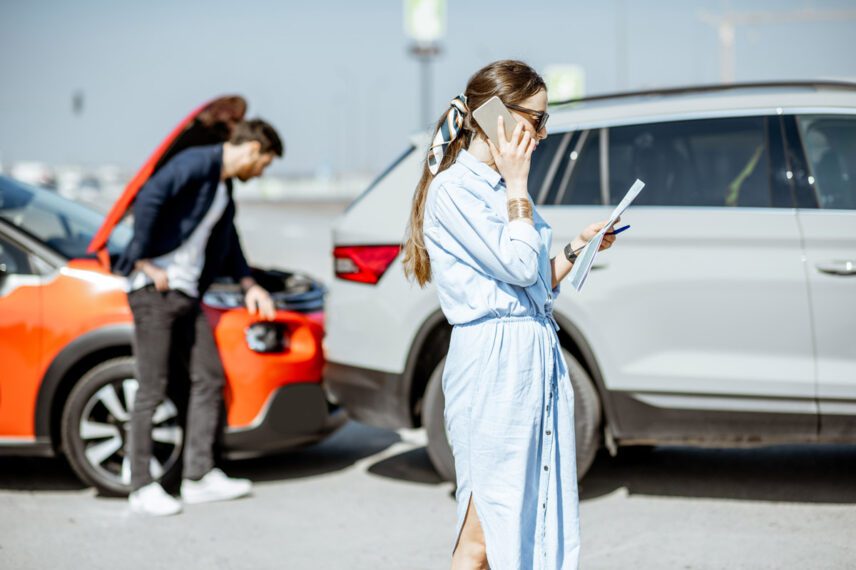
A car accident kit to prepare for emergencies can be a crucial asset in the event of a car accident, breakdown, or collision. Proper preparation prevents injuries and mishaps from becoming worse than they need to be. By creating a car accident kit, you can be prepared for the worst-case scenario should you ever have the unfortunate fate of experiencing an accident or injury.
How to Avoid a Roadside Emergency
To prevent unnecessary roadside emergencies, maintaining your car and checking for any mechanical problems are critical. This includes checking your tires for any discrepancies in tire pressure by using a tire gauge every few weeks. While digital monitors are a great tool to let drivers know when the pressure is abnormal, they aren’t always as accurate as a manual check. Additionally, while using a car’s dashboard monitor to check when it’s time to change your oil is helpful, nothing beats manually looking at your dipstick for verification.
It’s also essential to change your gas tank around the quarter mark to ensure that should you encounter any unforeseen obstacles, you will still have enough gas to make it to the next gas station.
Another important consideration to prevent roadside emergencies includes monitoring the weather forecast for any inclement storms or weather which may cause dangerous road conditions to develop. Along with checking weather conditions, monitoring any traffic reports for travel problems can help prevent roadside hassles.
The Best Items to Keep in Your Car Emergency Kit
When you’re in the car, it’s essential to be prepared for anything that might come your way. Here are a few of the best items to pack in your car emergency kit.
1. Jumper Cables
Dead batteries are extremely common, so having a backup plan is vital to ensuring you can make it to the repair shop. Jumper cables are perfect for getting your car started in times of emergency.
2. First-Aid Kit
Injuries are a hazard of daily life. Keeping a first aid kit on hand guarantees you’ll have the basic necessities to tend to minor wounds and injuries.
3. Water
Breaking down in remote locations or being stranded on the side of the road can mean a long wait before help arrives. Sweating excessively in the summer heat also means your body needs fluid replacement faster than usual, so having water on hand is critical to avoiding the symptoms of dehydration.
4. Traction Boards
Traction boards are essentially ramps that you place under your tires whenever your car is stuck in mud, sand, or areas with little to no traction. The boards create friction which helps your vehicle get out of sticky situations—a must-have, especially for off-roading fans.
5. Blanket
Having a blanket for warmth is a great protective measure, especially when traveling in cold or snowy places. Additionally, keeping an extra jacket or warmers in the car is an excellent measure for unforeseen weather conditions.
6. Lantern or Flashlight
A flashlight or lantern is a great idea for nighttime hazards and can be useful if you need to venture to places to find help. Additionally, it provides a source of illumination for other cars on the road to avoid hitting you.
7. Backup power adaptor
Keeping a backup battery for your cell phone that doesn’t rely on your car’s charge is a great idea for times of emergency so that you can ensure your cell phone is still able to make any calls you need.
8. Satellite Communication Device
Especially critical for when you travel to remote areas without cell phone reception, satellite communication devices like the Garmin InReach or the SPOT transmitter make it possible to connect with emergency services when cell phones don’t suffice.
9. Rain Poncho and Umbrella
Protective covering for sudden flash floods or rainstorms can protect you from getting excessively wet or suffering from hypothermia. Both are great items to have in stormy areas, should you need to seek cover outside of your vehicle.
10. Emergency Flares
Emergency Flares are an excellent item to carry should your car break down at night. Flares help signal other drivers to take caution before approaching your car and can prevent accidental roadside pedestrian collisions from occurring.
Conclusion
Roadside emergencies happen every day, and you’ll likely experience at least one at some time in your life. However, by taking preparedness measures and creating a roadside emergency kit, you can eliminate some of the most basic dangers presented by these situations.

